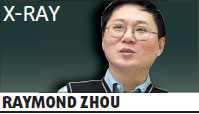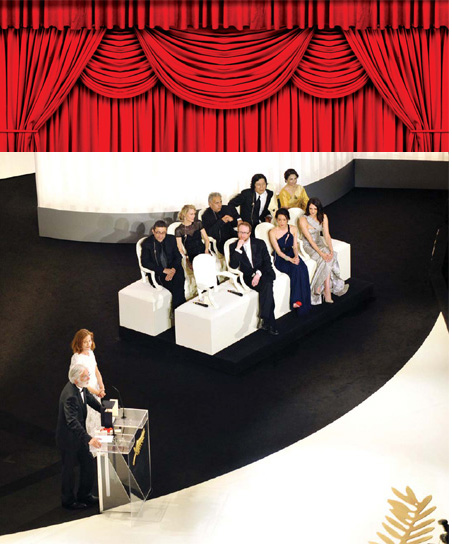 Cannes is the ideal antithesis for those who hate Hollywood and its Academy Awards. It represents everything that is essential to film as an art form.
Cannes is the ideal antithesis for those who hate Hollywood and its Academy Awards. It represents everything that is essential to film as an art form.
The truth, however, is somewhat more complicated than merely referring to the Oscars as celebrating commerce and the Cannes Film Festival (and to a lesser degree, the Venice Film Festival and the Berlinale) as all about art.
The biggest difference lies in its voting process. The Oscar is decided by the votes of 6,000 members of the Academy, comprising the "elite" of the film industry. It is recognition by one's peers. The Cannes jury is also mostly peers, with an occasional slot for critics, but changes every year and numbers as few as a dozen or even less, rendering its preferences unpredictable.
So it is that Cannes' awards are decided. Its jury's results range from eye-openingly insightful to jaw-droppingly obtuse. In 1994, for example, it gave the Golden Palm, its equivalent of the Best Picture Oscar, to Quentin Tarantino's Pulp Fiction, a bold movie that received seven Oscar nominations but garnered only one (screenplay). Conversely, it also awarded the 2006 Palm to The Wind That Shakes the Barley, which I found to be fraught with political stereotypes and a staid formula.
 |
|
Jury president Isabelle Huppert looks on as her friend, Michael Haneke, accepts his Golden Palm in Cannes, watched by her fellow all-powerful panelists. AFP |
While the Academy tries to balance business and art, Cannes can be overtly political and sometimes wants to simply send out a message. In 2004 the anti-war Cannes jury voted unanimously for Fahrenheit 9/11. Was Michael Moore's documentary good? Yes. Was it so good that it will go down as a classic? I doubt it. Filmmakers, being the liberal bunch they are, hated George W. Bush and his war in Iraq. Had the movie been only half as good, it would probably have still nabbed some prize or other.
A sin worse than Cannes' political grandstanding is its cliquish atmosphere. Not only is the jury made up of a very select group but the directors whose films pass the screeners are small in number and homogeneous in taste. China's Lou Ye got through the door this year but rest assured, Ning Hao would never make the cut. Not even Lu Chuan. Why? Because they are not "quirky" enough for the panel.
Put more bluntly, you have to make a certain kind of movie. If your aesthetic goes outside the realm of the selection committee, and later on the jury, you'll never register on Cannes' radar.
Consider this year's list. It basically consisted of Cannes favorites, among them Ken Loach, Jane Campion, Ang Lee, Lars von Trier and Pedro Almodovar. While all were tried and trusted "insiders", Ang Lee's inclusion was all the more remarkable for the fact he was welcomed back into the fold, having lost favor for having the temerity to win at Venice and Berlin, making him a favorite at rival festivals.
